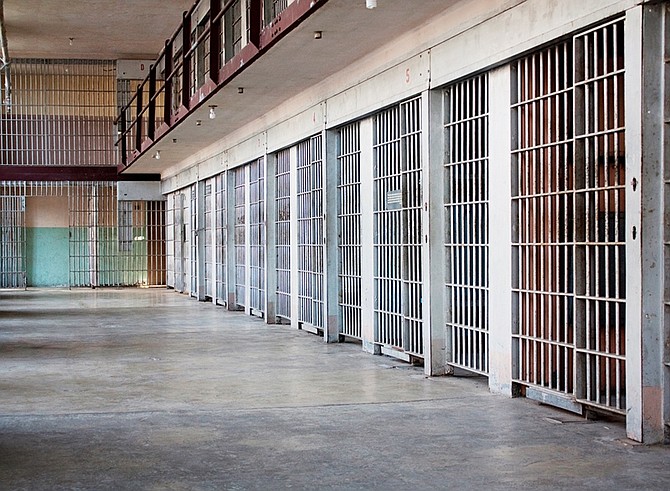Cook County Sheriff Supports Bill to Remove Low Level Offenders from Judicial System
Low-level offenders may soon be spending less time incarcerated thanks to Ill. Senate Bill 202 (SB 202), a piece of legislation that Cook County Sheriff Thomas J. Dart is sponsoring. The bill, otherwise known as the Accelerated Resolution Court Act, shortens the length of time low-level offenders spend in the Cook County judicial system.
Dart views the Accelerated Resolution Court Act as a partial solution to the congested judicial system, overcrowding at Cook County jail and as a means to ensure that every punishment fits every crime.
“These are people in on retail theft or criminal trespass charges – these are people traditionally looking for a place to sleep,” said Dart. “They are staying for outrageous lengths of time. For the human side of this, these are not people that should be incarcerated for any length of time unless there is a compelling state reason.”
Cook County law enforcement agencies have also lent their support towards the Accelerated Resolution Court Act.
“We have an unprecedented level of communication with the [Cook County’s] Public Defenders’ Office and the [Cook County] State’s Attorney’s Office,” said Cook County Jail Executive Director Cara Smith. “We’re working on addressing mass incarceration on multiple levels this effort being one of them.”
The synopsis of the Accelerated Resolution Court Act states:
Creates the Accelerated Resolution Court Act. Creates the Accelerated Resolution Court pilot program in Cook County. Provides that under this pilot program, the Cook County Sheriff or his or her designee, acting in his or her official capacity as Director of the Cook County Department of Corrections, may refer eligible defendants to the Accelerated Resolution Court provided that notice is given to the prosecuting State's Attorney, the defendant's counsel of record, and the Presiding Judge of the Criminal Division of the Circuit Court of Cook County.
To be eligible for the Accelerated Resolution Court Act offenders must: be charged with retail theft of property less than $300 or trespassing on real property or State supported land, be in in the custody of the Cook County Department of Corrections 72 hours after bond has been set, and must be unable to post bond or be ruled ineligible to be placed on electronic monitoring due to homelessness or a lack of a sufficient host site approved by the Sheriff.
Perpetrators of violent crimes within the past 10 years are ineligible for the program.
Ill. Sen. Bill Cunningham (Dist.- 18th), the primary sponsor of the Accelerated Resolution Court Act, explained that the justice system in Cook County has far too many low-level cases that could be handled more efficiently.
“What we are seeing is that a number of individuals that can’t pay their bond they end up stay in jail for a longer period than that on a pretrial basis waiting for their case to go trial,” said Cunningham. “We think that this is a waste of resources, it’s very expensive to keep someone detained in county jail, what this bill would do is set up a special court that focuses on these cases.”
Cunningham shared the details of a Cook County Jail report with the Chicago Citizen Newspaper that stated as of April 1, 2015, 96 inmates charged with criminal trespassing were detained an average of 145 days and 250 inmates charged for retail theft were detained an average of 112 days. Cunningham estimated the cost to detain a single individual in a Cook County correctional facility is roughly $117 to $140 per day.
The Accelerated Resolution Court Act passed in the Ill. Senate and awaits passage in the Ill. House of Representatives where Ill. State Rep. Michael J. Zalewski – (Dist.-23) is the primary sponsor. If passed, SB202 would become effective July 1, 2015.
To learn more about the Accelerated Resolution Court Act visit http://www.ilga.gov/legislation/billstatus.asp?DocNum=202&GAID=13&GA=99&DocTypeID=SB&LegID=84162&SessionID=88.
For more information about the Cook County Sheriff’s Office visit http://www.cookcountysheriff.org/.
Latest Stories
- ICYMI: Midwest Democratic Leaders Emphasize Party Strength and Unity Ahead of 2024 Democratic National Convention
- West Side Young Men Travel to the State Capitol to Advocate for a new Department for Early Childhood and the Austin People’s Action Center’s Freedom School
- Comcast Launches NOW – a New Brand and Product Portfolio that Redefines Low-Cost Internet, Mobile, and TV
- Wards365 Announces Summer50 Fest on Saturday, May 18 at United Center City-Wide Resource Festival focused on Summer Activities for Youth and Families
- The Magic Of Alvin Ailey Comes To The Auditorium Theater
- BOSS Impact Funds Gives Black Women Entrepreneurs Access To Capital
- Closing the Black Maternal Health Gap Is At The Center Of Organization’s Work
- Praize Productions’ Production Shows That ‘Black Love Reigns Supreme’
- Chicago Public Schools Announces 2024-25 Preschool Application Launch
- State Treasurer Michael Frerichs Pushes to Reunite Residents with Unclaimed Property, Missing Money
Latest Podcast
Sydney Blaylock-The local skater with national experience


